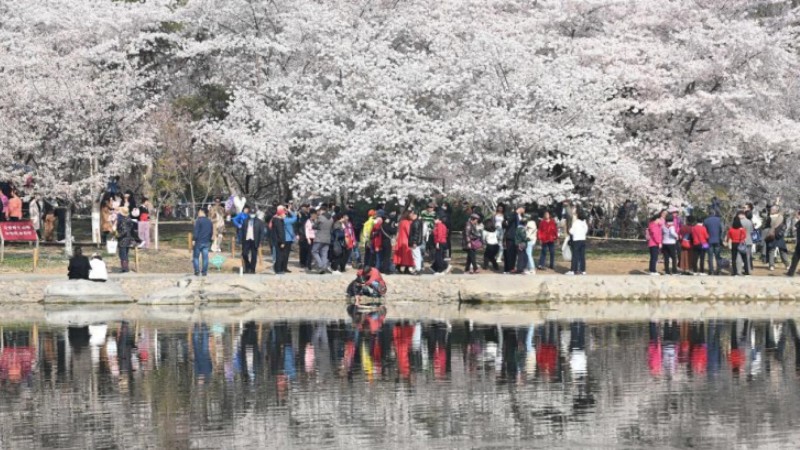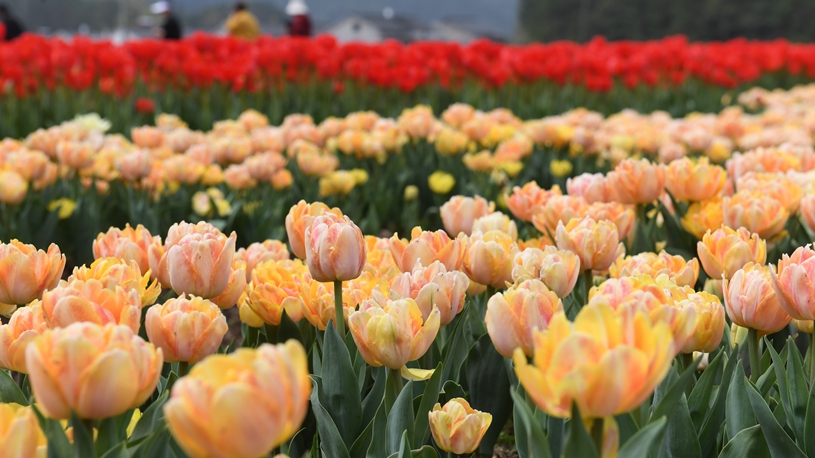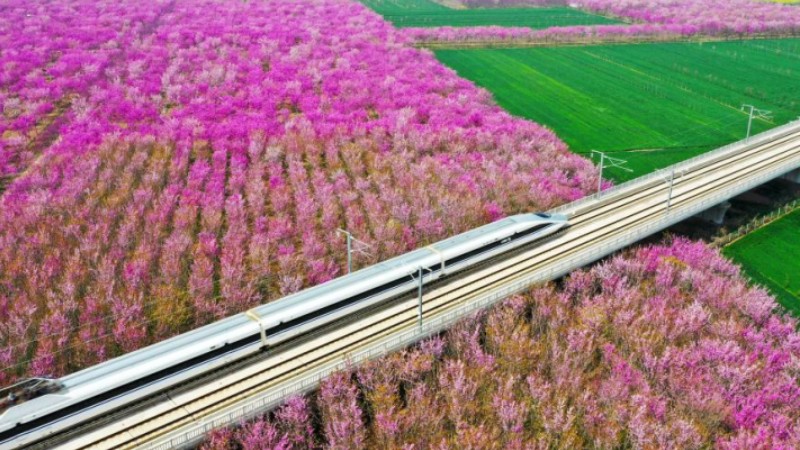China, ASEAN aim for deepened agriculture cooperation
BOAO, Hainan, March 31 (Xinhua) -- Durians from Thailand, bananas from the Philippines, passion fruit from Vietnam, longans from Cambodia, and coffee from Malaysia. More and more agricultural products from ASEAN countries are well-received by Chinese households, thanks to better China-ASEAN cooperation in agriculture.
China has been the ASEAN's largest trading partner for the past 13 years, and trade in agricultural products plays a vital role, said Kao Kim Hourn, ASEAN secretary-general at the ongoing Boao Forum for Asia (BFA) annual conference.
Kao Kim Hourn also noted that China and the ASEAN launched many projects on trade in agricultural products such as grain, meat, vegetables, and fruits, as well as personnel exchanges and technical exchanges.
Representatives at the forum from China and ASEAN countries widely recognize that the two sides have deepened their agricultural cooperation comprehensively.
Fruitful achievements have been made by China and the ASEAN in terms of investment and trade, scientific and technological exchanges and cooperation, food security, green and sustainable development of agriculture, and inter-governmental policy coordination, which is a significant contribution to fostering a closer China-ASEAN community with a shared future.
China's agricultural investment in ASEAN countries accounts for 40 percent of its total oversea investment. The trade volume of agricultural products between China and the ASEAN reached 61 billion U.S. dollars in 2022, topping the other countries and regions worldwide, according to Sui Pengfei, director general of the international cooperation department under China's Ministry of Agriculture and Rural Affairs.
Statistics from China's General Administration of Customs show that nearly 1,500 kinds of agricultural and food products from the ASEAN have been exported to China. High-quality agricultural varieties and technologies from China also boosted the development of agricultural industries in ASEAN countries.
The Chinese Academy of Tropical Agricultural Sciences (CATAS) has cooperated with ASEAN countries to carry out projects such as new variety breeding, green and efficient cultivation technology demonstration, and intensive processing of tropical agriculture products, said Xie Jianghui, deputy director of CATAS.
The academy has signed cooperation agreements with 25 scientific and educational institutions in ASEAN countries, such as Kasetsart University in Thailand and Royal University of Agriculture in Cambodia.
A total of 50 training courses on agricultural technology have been held in ASEAN countries by CATAS. Eight cassava varieties cultivated by the academy have been promoted in Southeast Asia, with a total planting area of more than 10 million mu (about 67,000 hectares).
South China's Hainan Province is building several cold chain logistics and trading centers to process and store tropical agriculture products for the ASEAN to strengthen the connection between the two tropical-product markets.
In recent years, Hainan and ASEAN countries have jointly carried out the R&D and utilization of excellent tropical fruit and vegetable resources and deepened cooperation in the planting and processing trade, seeing a steady increase in imports and exports of tropical agriculture products.
Hainan will make good use of the free trade port system and the Regional Comprehensive Economic Partnership to promote the deep integration of the industry chains, supply chains, and value chains between China and ASEAN countries, according to Xie Jing, vice governor of Hainan Province.
China mainly exports fish, garlic, citrus, apples, condiments, and other products to the ASEAN and imports fruits, vegetable oils, aquatic products, grain, and other primary agricultural products from the ASEAN. Sui Pengfei said if the two sides keep improving the trade level, the related trade volume may reach 100 billion U.S. dollars in the next five to seven years.
Representatives to the forum also said China and ASEAN countries should cooperate in setting the standards for planting and processing tropical agriculture products and in enhancing food security.
Photos
Related Stories
Copyright © 2023 People's Daily Online. All Rights Reserved.









